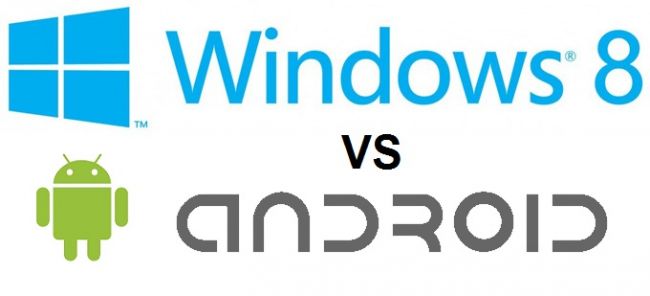The newer technologies contribute to make the app development process much easier and simpler. With Windows, offering a dynamic platform for building innovative apps, it also provides scalability, reliability and efficiency to the applications. On the other hand, android possess a strong hold in the market and offers plenty of benefits to the developers to develop innovative mobile apps for varied business entities.
The new Windows 8 has created a wave of excitement among smart phone users and its popularity has increased by leaps and bounds. So also, the Windows Phone App Development Companies India has received huge projects for developing innovative apps for the Windows platform. At present, we have three major competitors to the mobile OS share, Apple with iOS, Google with Android and Microsoft with the Windows Phone.
In this post, we would like to compare Android with Windows Phone from a developer’s scope.
Comparison# 1
The first question that concerns every developer is “how easy is it to start developing on a new platform”. Assuming that you already are a Windows user then the things are quite easy. Just download the SDK and the Visual Studio Express and you are ready to start. The same stands for Android too, just download eclipse, the eclipse plug-in and the Android SDK and you are set to go.
Both platforms have rich documentation but Android has an advantage to online communities like Stack Overflow and Mailing Lists. But the problem begins when you are a Linux or a Mac user. Eclipse and the Android SDK run on all the operating systems and versions while the Visual Studio runs only on Windows Vista and later.
Comparison# 2
The second comparison is cost. The Windows mobile app development has extra costs. You have to pay for the full version of VS and have to pay an annual fee if you want to publish an application or deploy an app on your device. Android, on the other hand, is significantly cheaper and you only need to pay once a small amount if you want to publish an app on the Play Store.
Comparison# 3
Speaking of emulators, Windows Phones have a huge advantage here. The Android emulator’s speed hasn’t improved over the years and is still very slow. The Windows Phone emulator starts at the speed of light as compared to the Android emulator. Again the eclipse’s android plug-in and toolset lack many features and many developers state that the Visual Studio is a much more stable and mature IDE than eclipse.
Comparison# 4
Both the development platforms use XML to construct the UI of an application. The Windows Phone offers a great drag and drop tool and the UI creation is a simple procedure. But things are quite complicated on Android. There are a basic drag and drop tool but it doesn’t do a lot of things such as designing the UI for so many different types of android screen sizes and shapes despite the tools and the good documentation.
Comparison# 5
Another important issue is the design guideline. Microsoft came with the Metro UI which is very splendid. Whereas the design guidelines for android are changing constantly, you have to re-design your app often but with the Metro UI, you won’t see any dramatic changes to the UI of the Windows Phone apps.
To wrap up, Windows Phone will surely attract many developers and users but it’s hard to overcome even half of the market share that Android owns. It’s easy to develop an app on both platforms, so choose what fits best for you. Contact us today for Windows Phone App Development…!
Related Articles
-
Why Is GenZ So Much Into VR Development Driven Human Teleportation?
Gen Z (birthdate between 1998 and 2008) is born with smartphones in hand. The traditional brick & mortar store shopping isn’t much into their memories. They have grown up experiencing
-
Creating Platform Independent Mobile Web Applications for Cloud – How will It Help Businesses?
The swelling numbers of mobile phones and their users in the market compels the businesses today to capitalize on the mobile trend for better brand reachability and sales. However, these
-
How 5G will Change the World of Mobile App Development?
With faster speed, lower latency, and increased bandwidth 5G network, replaced the 4G network and took over the center stage. There is no denying that the 4G network in the



